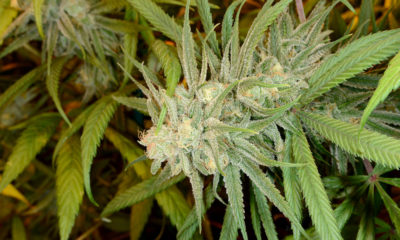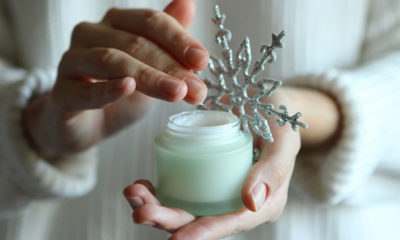
Cannabis
Study: Only 30% of Mail Order CBD Labeled Accurately
A recent study found that CBD oil vape pens are the most likely to be mislabeled — at 87 percent of the time.
Only one-third of cannabidiol products are being labeled accurately, according to new research released last week.
The research letter authored by Marcel O. Bonn-Miller, Mallory J. E. Loflin and Brian F. Thomas appeared in the Nov. 7th issue of the Journal or the American Medical Association.
The group’s affiliations are prestigious, and include the University of Pennsylvania Perelman School of Medicine, Johns Hopkins University School of Medicine and the longtime medical cannabis advocates at Americans for Safe Access in Washington, D.C.
The researchers say they were motivated by CBD’s purported benefits for “a myriad of health conditions,” but also the lack of regulation and oversight in the market that means consumers aren’t always guaranteed to get the CBD products they think they’re buying.
Last fall, the researchers worked to identify the most generic CBD oils being sold online. They literally typed in keywords like CBD, cannabidiol, oil, tincture, and vape into search engines and saw what appeared. From there, they narrowed their scope down to the products that actually included the CBD contents on the outside of the packaging. All the products that met their labeling demands were purchased, and then sent off to a lab for analysis.
At Botanacor Services, a lab that specializes in serving Colorado’s rapidly expanding industrial hemp industry, the samples were tested for CBD, THC, and a bunch of other cannabinoids using high-performance liquid chromatography. They then used a 10-point validation method to determine the best way to treat the samples and create an accurate and fair data set.
In total, the researchers collected 84 products from 31 different companies. The observed CBD concentration range in those products went from .10 milligrams per milliliter to a whopping 655.27 mg/ml. The average concentration found in all the products was about 15 mg/ml.
As for the actual labeling when it came to CBD, the results were truly all over the place. About 42 percent of the products tested under-labeled the amount of CBD they contained. On the other hand, 26 percent of the products where over-labeled and didn’t feature the advertised amount of CBD. It’s also important to note that the researchers were already giving these companies some leeway up to 10 percent north or south of their claimed CBD contents, so those mislabeled products were definitely missing the mark by more than a little bit. The remaining 30.95 percent were labeled accurately by the researcher’s standards.
The delivery medium of the CBD also tended to play a big factor in the accuracy of the labeling according to the letter. It was found that the oil vaporizers tended to be the products that were mislabeled the most, coming in with the wrong numbers 87 percent of the time, which was represented by 21 mislabeled products. Other oils were found to be the most accurately labeled products, with 45 percent of them hitting the window deemed accurate.
This study reveals a very specific problem that those producing their CBD oil from industrial grade hemp encounter. The current state of federal prohibitionist cannabis policy makes it basically impossible to prove whether you’re selling rope oil or the best AC/DC people can get their hands on.
According to Josh Drayton of the California Cannabis Industry Association, this labelling problem is something professionals have been keeping an eye on, and believe will clear up pretty fast in the age of legalization, by law.
“The cannabis market has existed without oversight, regulations, or mandatory testing, which leads to public safety and public health issues,” Drayton told Cannabis Now. “As California moves into the adult use market, it has been the top priority of the industry, the regulating departments, and the administration to minimize any threats to public health and safety and to implement mandatory testing regulations aimed at consumer protection. Accurate labeling will not be an option in the near future, it will be mandated.”
TELL US, do you think CBD products should face more regulations?






















